The Creditinfo Chronicle
Phone model, mobile internet and missed calls might determine whether you get credit

Press Release
Ever more personal data will in the future determine whether people can get a loan or buy goods on installment. If a person consents, before a decision is made about granting them credit they may be asked for permission to examine not just repayment of past loans but also other private information: what model of phone they have, whether they actively use mobile internet, whether they often do not answer calls. It may even be suggested that they play a real-time game whose outcome will determine whether they as a customer are creditworthy.
While companies that give credit have typically relied only on information gathered by financial institutions, now more and more personal data will influence decision-making. Whether credit is granted, how much, and on what terms may depend on whether a customer is ready to share that information.
“There’s no doubt that personal data can only be used with the person’s consent,” Creditinfo Head of Decision Analytics for the Baltic states, Maxim Fetisov immediately stresses. “But practice shows that openly sharing additional information increases a creditor’s trust, lets them more accurately assess each customer’s trustworthiness, and even allows customers to expect more favorable credit terms.” Research conducted by Creditinfo has shown that knowledge about a customer’s personal habits gives creditors just as many insights as formal data.
A recent conference “Scoring Kitchen” by Creditinfo, which rates the creditworthiness of companies and individuals in more than 50 countries, addressed what is new in the scoring process. For example, a study was done together with telco company on how people’s financial reliability relates to their everyday behaviour. Analysis of the data revealed that even how long people use one telecom operator’s services shows which ones are financially more trustworthy: the longer someone uses the same telco’s services, the more financially reliable their loan-payment history is too. And on the contrary, customers who frequently change operators generally demonstrated a higher level of riskiness.
Those without 4G and who use mobile internet little fall into a higher-risk group
Creditinfo analyst Allan Anyona, who took part in the study, also notes that individuals who are less financially reliable tend to have more modest internet plans and rush to connect as quickly as possible to free Wi-Fi networks at home and elsewhere.
Moreover, it was observed that the more advanced the network connection a potential customer’s phone supports, the greater their creditworthiness. So customers using phones that support 4G network requirements are seen more favorably than those whose phones only work on a 2G network or do not make such information available.
Many missed calls points to a frequent debtor
Creditors get useful insights as well from data about whether a potential customer often fails to answer incoming calls. People were divided into five categories: those who fail to answer calls very often, often, an average amount, rarely, and very rarely. It turns out the most financially reliable were those in the last two groups. The riskiest customers, meanwhile, were among the people who “miss” calls more often than others.
“We assume that people experiencing financial difficulties avoid answering calls as they do not want to talk with creditors or with relatives to whom they may also be in debt,” the Creditinfo Group analyst explains.
With smart devices revealing more and more information about consumers, creditors are eager to actively look at other habits too – like the use of a mobile wallet. The more punctually a customer tops up their mobile wallet limit and the bigger their income, the higher their credit rating will be. Conversely, the smaller someone’s income is and the longer they use credit provided by a telco, the more cautiously other lenders will view them. So those people should not be surprised if they are not allowed to buy a more expensive item on installment or are refused a bigger credit limit on a payment card.
Games show how you will behave with real money
Seeking to get a more objective assessment of a customer’s creditworthiness and to automate the decision-making process, psychometric data are being used ever more actively. A future customer may be asked to play a quiz that takes 5-7 minutes. It may be a series of questions, like: how would you use an unexpected gift of €200 – would you spend it on entertainment or save it? Studies show that the customers who meet their financial obligations most responsibly tend to choose the answer ‘I would save it’ in the game, while the riskiest customers more often choose ‘I would spend it on entertainment’.
“We realize that over time skilled players learn to choose those answer that creditors view more favorably. But in calculating any individual’s rating, dozens of other factors are also assessed, like their insurance history, repayment of earlier loans, payment of utilities bills, and so on,” CEO of Creditinfo Lithuania, Aurimas Kačinskas notes.
The pandemic also altered how companies are rated – there are new factors
The CEO of Creditinfo Lithuania says the challenges of the pandemic in 2020 are also changing the rules for rating businesses. New factors have arisen that impact credit scores. For instance, a new indicator for the impact of Covid-19 has altered the current ratings of companies all over the world. It shows how the coronavirus pandemic has impacted every area of business (e.g., tourism, hotels, manufacturing, transport, etc.) and how companies’ creditworthiness relates to the geographic location of their operations, demand for the goods they produce, and possibilities for quickly recovering after restrictions and quarantine end. Businesses’ ratings are also heavily influenced by a ‘Collection’ indicator that reflects whether a company punctually settles with its creditors.
“We have no doubt that the new factors that are coming up will have an increasing significance for companies’ credit scores – in a time of economic turmoil, it’s very important for creditors to objectively assess every customer’s riskiness and make the most accurate decisions possible,” Maxim Fetisov, Head of Decision Analytics in the Baltics says.
-ENDS-
About Creditinfo
Established in 1997 and headquartered in Reykjavík, Iceland, Creditinfo is a provider of credit information and risk management solutions worldwide. As one of the fastest growing companies in its field, Creditinfo facilitates access to finance, through intelligent information, software and analytics solutions.
With more than 33 credit bureaus running today, Creditinfo has the largest global presence in the field of credit bureau and risk management, with a significantly greater footprint than competitors. For decades it has provided business information, risk management and credit bureau solutions to some of the largest, lenders, governments and central banks globally – all with the aim of increasing financial inclusion and generating economic growth by allowing credit access for SMEs and individuals.
For more information:
Media Contacts:
Caterina Ponsicchi,
Marketing Director, Creditinfo Group
Mala’a launches Credit Bureau System in Oman

Creditinfo and Mala’a’s strategic partnership started in January 2019 and since then, the teams have been developing a state of the art Credit Bureau System, connecting members, integrating with new data providers, and ensuring the system is protected to the highest security standards.
On November 18th 2020, Mala’a officially launched its state-of-the-art Credit Bureau System to the banking sector in Oman. This announcement affirms Creditinfo’s commitment in helping businesses globally make better use of information and data, along with providing the latest software solutions to enhance risk decisioning strategies. Creditinfo have over the years strengthened our partnerships with Credit Bureaus globally by delivering Creditinfo’s technology with core credit bureau systems, infrastructure expertise, operational set up, self-service platforms, alternative data, digital lending solutions among other tailored services.
Creditinfo will continue partnering with Mala’a into the next phase of our project. The teams will be ensuring we expand the membership to new sectors such as telecommunication and insurance and delivering new value-added services like Instant Decision Solutions, Mobile Lending Platforms and Portfolio Management tools. This will help lenders and organizations improve the application process and the customer experience for Oman residents.
Lenders across the GCC are changing the way in which they operate and make decisions on an individual’s creditworthiness moving to a digital based approach while harnessing traditional and non-traditional data. With Creditinfo Gulf based in Muscat now firmly installed in the region Creditinfo will remain at the forefront of facilitating access to finance in each of our markets and help lenders to reduce risk and increase profitability. We look forward to continuing assisting with cutting-edge technology in the region and helping Lenders and Telcos increase profitability without increasing the risk of new business.
Gary Brown, MD, Creditinfo Gulf.
Creditinfo West Africa Hits 20 Million Contracts

Creditinfo West Africa today marked a major milestone by hitting the 20 million contracts threshold and growing, in the regional Credit Information Bureau (BIC) making it a historic day for Creditinfo West Africa, the entire UEMOA region and Creditinfo Group.
Six Corporate Image Improvement Tips for CFOs
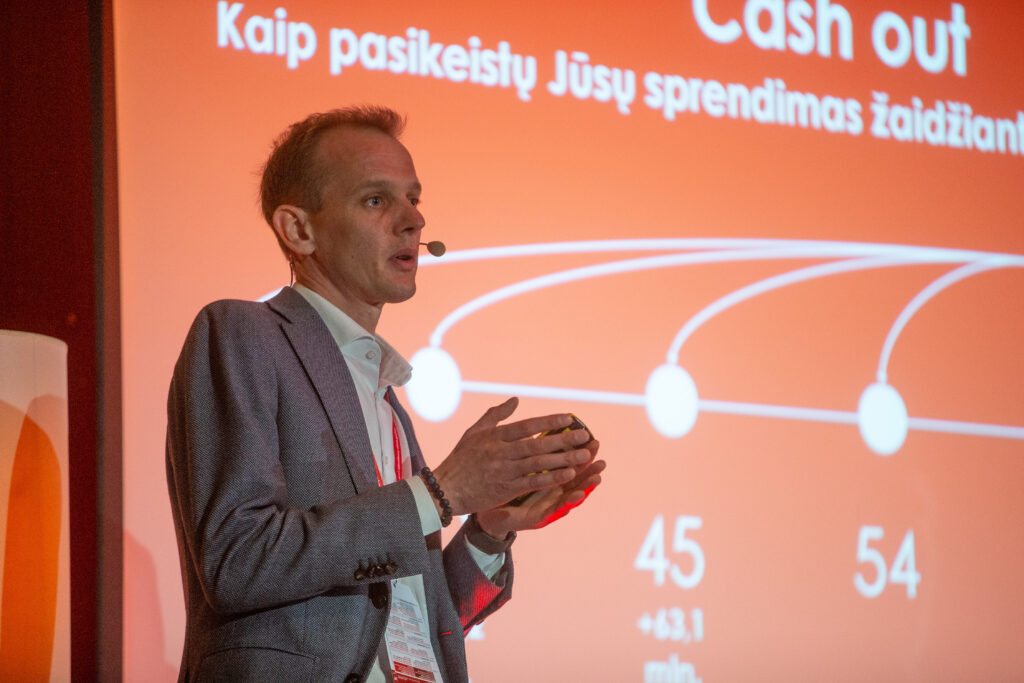
It is customary to assume that the reputation and image of a company is mostly a prerogative of the general manager and the marketing unit. Credit is also given to employees who are in direct contact with the customers, yet financial decision-makers mostly go unnoticed. In this article, I will share some ideas about the huge influence Chief Financial Officers may have on the good corporate image.
Creditinfo IBCH (Ukraine) welcomes Kateryna Danylchenko as new GM

Kateryna has been appointed as GM of IBCH, a Credit Bureau and Analytics company in Ukraine in which Creditinfo has been a strategic investor since 2006.
Players in Baltic Markets (Latvia, Estonia) and Iceland Measure Risk better, benefitting from Covid-19 Impact Score Developed by Creditinfo.

Credit providers need to understand how COVID crisis affected their counter-parties and customers in order to better manage risk exposure and reduce losses. Current scoring models are unable to fully answer these needs as they were developed on pre-crisis data and need time to adjust to new conditions.
What can Telcos learn from Digital Lenders?

On Tuesday 28th July, Safaricom (the largest mobile provider in Eastern and Central Africa), launched a new service offering consumers the opportunity to buy a 4G-enabled smartphone for as little as 600 KSH (6 USD) per month for nine months, with an initial deposit of 1,000 KSH (10 USD). This is a high-impact initiative for the country, where the average monthly disposable income is just 8,500 KSH (85 USD) according to a 2019 report from the Kenyan National Bureau of Statistics.
New initiatives and products of the Credit Bureau “Ishenim”

Together with partner IT company “Onoy” Ishenim has developed innovative mobile app that enables Lenders to collect customer’s digital consent to access his social fund data and credit report. Mobile app uses biometric verification technology (face recognition) to remotely verify person’s identity and create digital signature that is needed to submit consent. In case of successful verification solution calls Social fund to collect information about person’s income and then makes inquiry to Credit Bureau for credit report. All income data collected by mobile app is stored in Ishenim’s database together with other data. This data will be used by Lenders to verify customer’s self-reported income and also in credit scoring models.
Experts give their take on the future of the credit industry post COVID-19
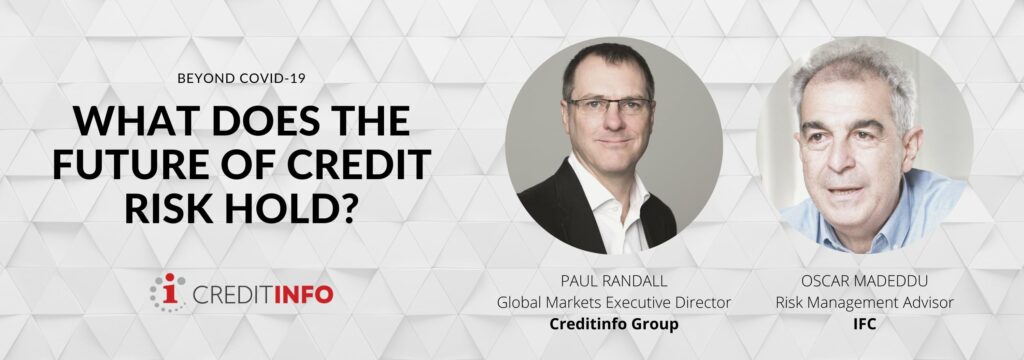
While Skype and Zoom become the new office, we had the great pleasure to interview two titans of the credit industry; Paul Randall – Global Markets Director at Creditinfo Group, and Oscar Madeddu, Senior Advisor at IFC, World Bank. With a new reality unfolding through disruption of to our daily life, we felt the necessity to ask the veterans of our industry what the future could look like in a post-COVID society. We asked our interviewees to share ideas on how the crisis will impact economies, credit, credit reporting and what authorities around the world are and should be doing to safeguard borrowers, lenders without endangering the integrity of credit reporting databases.
The way leading to the ‘haven’ of Startups is grounded by Data Analysis

Lithuania‘s transformation to the startup-friendly country has been successful: last year the first “unicorn” appeared in the market, and the startup ecosystem at present includes over 900 enterprises which have the great potential for business development based on innovations. And yet, the general conception of the startups’ contribution to the country’s economy has remained stereotypical, as it is alleged that these are risky enterprises which rapidly emerge and dissolve, and that they create few workplaces. The latest analyses done by “Creditinfo” and “Startup Lithuania” reject these stereotypes.
Interview with Catherine Muraga, CIO – Stanbic Bank Kenya
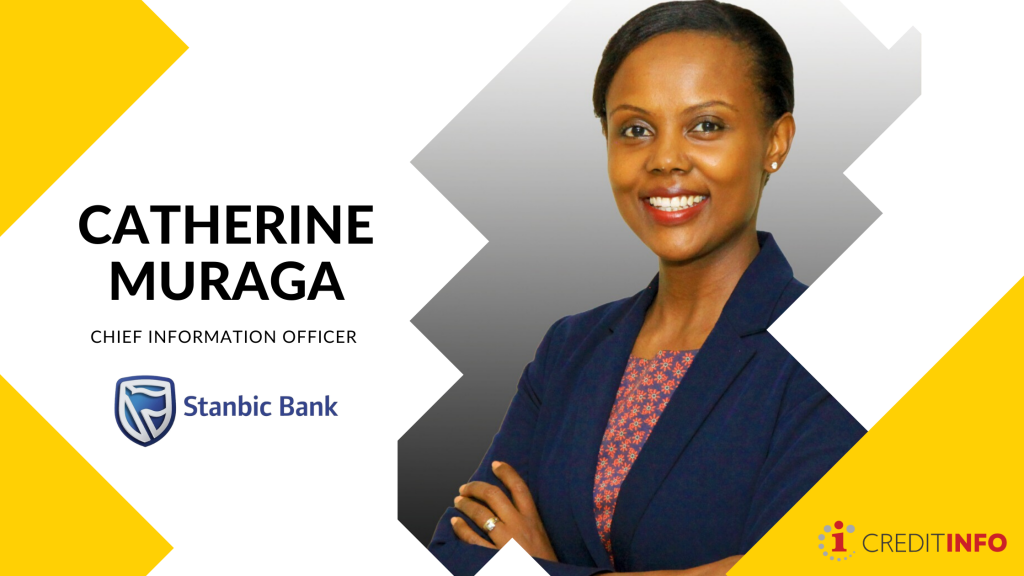
We interviewed Catherine Muraga the Chief Information Officer (CIO) at Stanbic Bank Kenya – one of the largest banks in Africa. Catherine is well versed with the Information Technology (IT) landscape having worked in different industry sectors including Manufacturing, Airline and Banking industry. She provides strategic vision and operational IT leadership for the Information Technology Department and controlling all IT functions. We asked her a few questions around COVID-19 and how Stanbic Bank is working around this pandemic.
Creditinfo’s “CIP Score” Between evolution and improvement: a powerful tool for risk management in a more digital financial environment
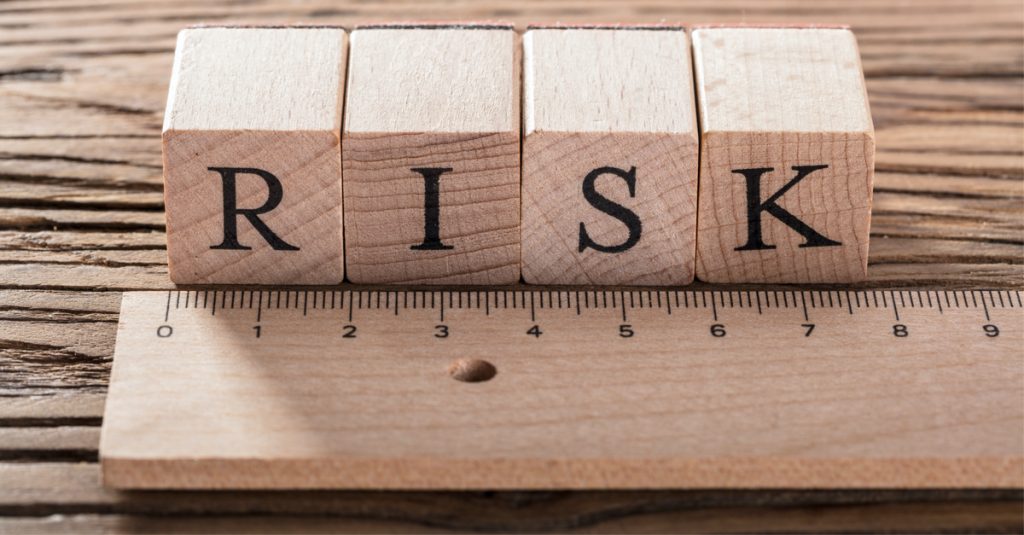
The core business of commercial banks and other lenders, at the most basic level, is to sell money. To loan an amount with a negotiated re-payment schedule with interest, is a process that allows the economy to finance itself. But for this cycle to be sustainable in the long term, it must be carried out with both vigilance and responsibility. The “credit risk” of a client, their probability of reimbursement, and differentiating between “good” and “bad” clients are basic yet essential elements to loan in a profitable and durable manner.
Kredītinformācijas Birojs – KIB (Credit Information Bureau) unveils new scorecard for consumers
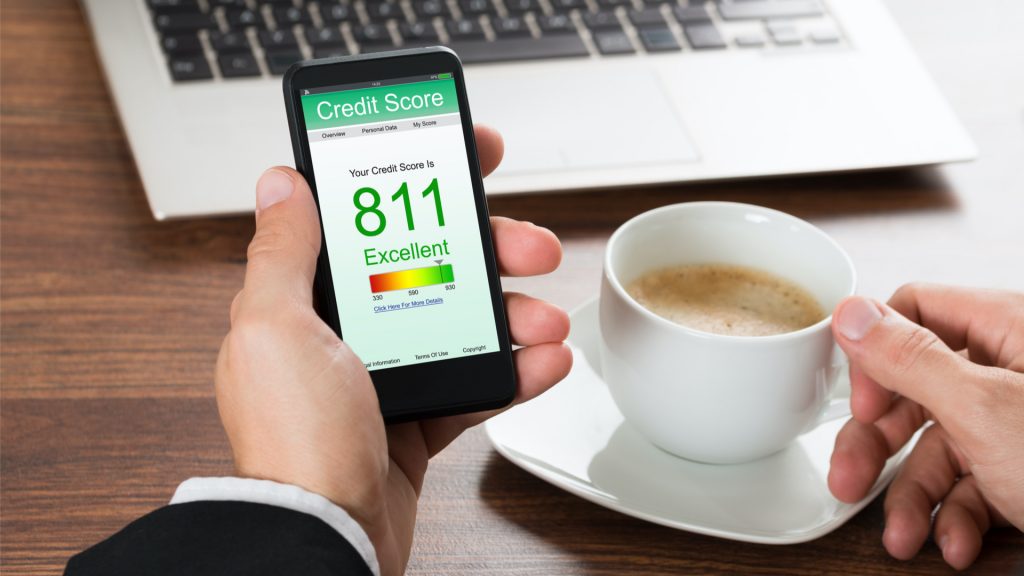
After intense work that lasted the past several months, Kredītinformācijas Birojs finally introduced a new statistical model that forecasts the borrower’s credit risk, last month. The new credit rating predicts the probability that a borrower will default on their credit obligations for more than 60 days in the next 12 months, with the amount of obligation being at least EUR 150.
The evolution of retail credit in the banking sector in UEMOA

Covid – 19 has hit the world with a “double shock”: an unprecedented contraction in supply and demand coupled with a health-economic conundrum. For Africa, and the UEMOA region, the immediate picture is bleak. However, there is hope if the financial sector uses the situation as a trigger for accelerated transformation of lending processes and products, taking the lead from other sub-Saharan markets and levering advantage of the robust financial infrastructure in place.
A Wake up Call for a New Humanism

The privilege of living where I don’t feel threatened by systematic discrimination doesn’t mean I can turn a blind eye and pretend this is not impacting me. It is affecting my friends, my colleagues, millions of people I don’t know, and the world, we, as parents, leave to our children.




